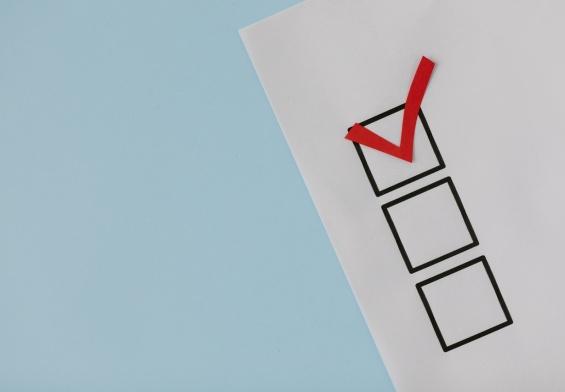Wage laws in New Jersey and across the country were the wild west without minimum wage laws to tie them down. That anchoring planted the seeds that bloomed into the fair pay we enjoy these days, an important facet of employment law in NJ. It helps workers earn a livable income while helping employers stay compliant with state and federal rules.
To understand the bigger picture of how these laws function, see our guide on how the minimum wage works.
You’re opening your workplace rights up to violation if you’ don’t understand the rights NJ minimum wage laws give you. That knowledge will come in handy if you ever need to handle complex employment situations.
The federal minimum wage under the Fair Labor Standards Act (FLSA) has stayed at $7.25 per hour since 2009. But, New Jersey has taken a different approach. The state’s minimum wage is higher and adjusts every year.
For employees, this means better protection against inflation. Meanwhile, employers get clear compliance expectations that help them avoid costly penalties. This guide explains how minimum wage laws work in New Jersey, their history, special rules for certain workers, and what to do if you’re not paid fairly.
New Jersey’s Current Minimum Wage
The concept of minimum wage began with the Fair Labor Standards Act of 1938. For a deeper look at its origins and growth nationwide, explore the history of the minimum wage. New Jersey’s minimum wage sits well above the federal level. As of 2025, most employers must pay employees at least $15.13 per hour.
There’s a slightly lower rate that applies to seasonal workers and small businesses with less than six employees. But, those wages are also increasing on a schedule until they match the standard rate.
NJ’s state constitution leaves room for lawmakers to set minimum wage rules and adjust them annually for inflation. That insulates New Jersey workers from rising costs better than other states only following federal law.
The NJ Department of Labor enforces these rules and handles complaints when workers are underpaid. For employees, this means that even if their employer follows federal law, they’re entitled to the higher New Jersey rate.
Importantly, employers cannot legally pay less than the state minimum wage, even if federal law sets a lower standard.
How Minimum Wage Evolved
The concept of minimum wage in the United States began with the Fair Labor Standards Act of 1938. Back then, the federal minimum wage was just 25 cents per hour.
Over the decades, Congress raised the rate several times. The last increase brought it to $7.25 in 2009, where it remains today.
New Jersey moved beyond the federal baseline by amending its constitution. Voters approved provisions allowing for scheduled increases and inflation-based adjustments.
The cost of living in NJ is higher than many other parts of the country, and that step recognized it. Minimum wage’s evolution in NJ represents a microcosm of how state-level laws can amend existing federal standards. When it comes to employment law in NJ, state and federal compliance are encouraged together.
Federal vs. State Minimum Wage
Under the FLSA, covered workers are entitled to at least $7.25 per hour. But, when a state law provides a higher wage, the higher rate always applies.
In New Jersey, this means workers enjoy the state minimum wage rather than the federal floor. This principle protects workers in states with higher costs of living.
Overtime is another area where state and federal law overlap. The FLSA requires time-and-a-half pay for hours worked over 40 in a workweek. New Jersey law follows the same principle.
Employers who fail to pay proper overtime risk significant penalties at the state and federal level. Employees who don’t understand how state and federal laws interact might not know when they’re being underpaid. Meanwhile, employers who aren’t tracking both sets of rules will find it difficult to stay compliant.
Special Categories of Workers in New Jersey
Tipped Employees
Tipped employees in New Jersey, such as servers and bartenders, have a lower cash wage requirement. Employers may apply a tip credit, but there’s an important catch.
The total combined wages and tips must equal or exceed the state minimum wage. If tips fall short, the employer must make up the difference. This protection ensures tipped workers still earn fair wages during slow periods.
Seasonal and Agricultural Workers
Seasonal workers and farm laborers are subject to different minimum wage schedules. These categories recognize the nature of industries that rely on part-time or seasonal labor.
But, the state still enforces progressive increases until wages reach the general minimum. This gradual approach helps employers adjust while protecting workers.
Youth and Training Wages
Federal child labor laws restrict the number of hours minors can work and the types of jobs they can perform. New Jersey follows similar protections and allows training wages in limited circumstances.
Even so, employers must ensure that young workers are not exploited. Their wages must follow both state and federal rules.
Independent Contractors
Independent contractor classification has become a key issue in NJ employment law. New Jersey applies the “ABC Test,” which makes it harder for employers to misclassify workers.
This approach is stricter than the federal FLSA test. Some employers, either knowingly or unknowingly misclassify their workers as independent contractors. When that happens, wrongly labeled employees could lose out on minimum wage, overtime, and benefits they should be getting. So, proper classification is crucial for both workers and employers.
Recent and Upcoming Changes in New Jersey
New Jersey has followed a clear schedule of wage increases over the past decade, aiming for a $15 standard. You can see how that path developed in our article on New Jersey’s minimum wage increases to $15 per hour by 2024.
After that point, automatic increases are tied to the Consumer Price Index. This system provides predictability for both workers and employers.
The U.S. Department of Labor’s data shows that New Jersey’s rates are among the most aggressive in the country. Seasonal workers and small business employees are still catching up to the standard rate.
By 2026, those categories are expected to align with the general minimum wage. Noncompliant employers can get smacked with significant fines, so keep an eye on the NJ Department of Labor’s annual updates.
Workers should check each January to ensure their pay reflects the new rates.
Employer Obligations and Employee Rights
Because wage laws often overlap, workers in border areas may need to consider both New Jersey and New York standards. For guidance, see our article on navigating wage and hour laws in New Jersey and New York.
Posting and Recordkeeping
Employers must post official notices about minimum wage laws in the workplace. They’re also required to keep detailed time and pay records.
Failure to maintain records can result in enforcement actions by state or federal authorities. These requirements help protect both parties in case disputes arise.
Enforcement and Penalties
Under the FLSA, employers who violate wage laws can face civil money penalties of over $2,500 per violation. New Jersey also imposes penalties and requires back pay for affected workers.
Repeated or willful violations may result in even higher fines. The Department of Labor doesn’t play around with this.
What Workers Can Do
If employees believe they’re underpaid, they can file complaints with the NJ Department of Labor or the U.S. Department of Labor. Consulting an employment lawyer in NJ is often the best way to navigate complex disputes.
Legal professionals can help determine whether federal or state law applies. They can also explain how to fix each situation.
Employer Compliance Strategies in New Jersey
Understanding the law is only the first step. Employers in New Jersey must also take proactive steps to stay compliant with state and federal minimum wage rules.
Many businesses suffer serious damage to their finances and reputations by failing to do so. But, there are several strategies that can help maintain compliance.
Accurate Timekeeping
Accurate recordkeeping is one of the most important compliance strategies. Employers should use reliable time-tracking systems that capture start times, end times, breaks, and overtime hours.
Paper logs are often unreliable and can create disputes. In contrast, digital systems reduce errors and provide clear evidence if wage disputes arise.
Regular Payroll Audits
Conducting regular payroll audits helps businesses catch mistakes before they become legal issues. An audit should confirm that all employees are paid at or above New Jersey’s minimum wage.
It should also verify that overtime is properly calculated. Payroll systems should account for tipped employees, ensuring tips and wages add up to at least the state minimum.
Training for Managers and Supervisors
Frontline managers often control scheduling, break times, and overtime approvals. Training supervisors on New Jersey wage laws ensures they understand when overtime applies.
They’ll also learn how breaks should be handled and when tip credits are permitted. A lack of training can lead to accidental violations that still carry legal consequences.
Posting Required Notices
Employers must display official minimum wage posters in the workplace. This rule applies even in small businesses.
The posters must be visible to employees and kept up to date whenever rates change. Failure to post the notice can be treated as a violation.
Classification of Workers
Misclassification is one of the most common wage law violations. New Jersey uses the strict ABC test to determine whether a worker is an employee or an independent contractor.
Employers should review contracts and job duties regularly to ensure workers are correctly classified. Misclassification can result in large back-pay awards and penalties.
Establishing Complaint Channels
Employees who feel underpaid often hesitate to raise concerns for fear of retaliation. Employers can reduce risk by creating confidential complaint channels.
Open-door policies and anonymous reporting systems help identify problems early. This allows businesses to correct them before they escalate to state investigations or lawsuits.
Legal and HR Consultation
NJ’s minimum wage laws change and interact with federal law every year. Without speaking to an employment attorney or an HR specialist, you might miss an important legal update. Legal review can also prevent systematic underpayment issues in complex industries.
If an employer isn’t performing accurate recordkeeping, regular audits, staff training, and legal consultation, they can’t protect their workforce. These strategies reduce legal exposure but also build trust with employees.
This trust improves retention and workplace morale. Those benefits stretch outside the borders of legal compliance.
Frequently Asked Questions about New Jersey Minimum Wage
What is New Jersey’s minimum wage in 2025?
As of January 2025, the general minimum wage is $15.13 per hour. Seasonal and small business employees earn slightly less, but their wages are scheduled to increase.
Do tips count toward minimum wage in New Jersey?
Yes. Employers can apply a tip credit, but only if total wages plus tips meet or exceed the state minimum. If tips are insufficient, the employer must cover the gap.
How does overtime work in New Jersey?
Overtime pay begins after 40 hours in a workweek. The rate must be at least one and one-half times the employee’s regular hourly rate.
Can New Jersey employers pay less than minimum wage for training?
Training wages are limited and must still follow state rules. Employers cannot use training as a way to avoid paying proper wages.
What should I do if my employer is not paying me correctly?
Workers can file a claim with the NJ Department of Labor or contact an employment lawyer NJ for help. Legal support helps ensure fair wages and protects against retaliation.
Protecting Your Rights Under NJ Employment Law
Minimum wage laws in New Jersey are stronger and more protective than federal standards. By linking wage rates to inflation and enforcing compliance, the state ensures workers receive fair pay that reflects the cost of living.
For employers, understanding both state and federal requirements is essential to avoid penalties. For employees, knowing your rights is the best way to ensure you’re treated fairly.
Protecting your pay starts with knowing the law and acting when your rights are at risk. Taking these steps helps create a fairer workplace for everyone involved.
Resources
https://www.dol.gov/agencies/whd/minimum-wage/history/chart
https://www.dol.gov/agencies/whd/state/minimum-wage/history
https://www.dol.gov/agencies/whd/flsa
https://www.njleg.gov/constitution
https://pub.njleg.state.nj.us/Bills/2018/PL19/32_.PDF




